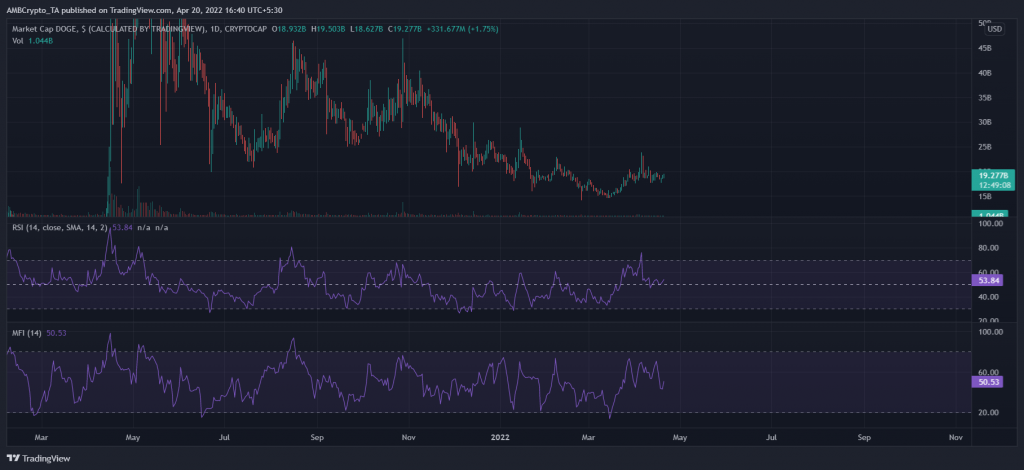Dogecoin’s price action might look unimpressive on the price chart. However, a lot of its proponents still have massive faith in the meme coin. One such person is Vlad Tenev, the CEO and co-founder of Robinhood.
In a 12-tweet thread, the tech CEO on 14 April noted that Dogecoin could truly be the future currency of the internet. However, the pertinent question remains- Will the DOGE be able to fulfill this prophecy in light of what is evident on-chain and on price charts?
The Internet Money For Your Kids
While noting that the future of cryptocurrency is marked by low transaction fees, Tenev argued that the DOGE transaction fees were already very low. Thus, giving it an edge over other cryptocurrencies.
“As of last Nov’s 1.14.5 update, typical transaction fees have been $0.003 – compared to the 1-3% network fees that major card networks charge.”
According to Tenev, DOGE is poised to become the future currency of the internet if it would be able to increase its throughput by at least 10000x, a feat achievable by increasing the block size limit for the meme coin.
However…
Despite the CEO’s opinions, a look at price charts analysis and on-chain analysis provided some significant pointers into the behavior of the coin.
At the time of this press, the price of the coin stood at $0.1449 representing an 80% decline from the ATH of $0.731578 recorded by the coin on 8 May 2021, and a 4.21% spike in the last 24 hours.
A consideration of the coin’s Money Flow Index (MFI) over a 4-month period revealed a constant bear pull towards the oversold region and the 50 neutral level or regions around it. Within the period under review, the coin inched close to the overbought 80-region, but the bulls could never make it through.
It merely touched the 74-region on three different occasions; that is on 3 January, 4 February, and 28 March. Once the coin hit these points, what followed was a downtrend. At the time of this press, the MFI for the meme coin stood at 50.73 in the neutral region.
This position above was also confirmed by the movements of the RSI within the same window period. Within this time frame, the bulls have only been able to push the coin to an overbought position of 76.33 only once on 5 April, a position which it had failed to retest. The coin recorded a significant bearish run on 10 January when the bears pushed the coin below the oversold position of 30. At the time of this press, the RSI stood at 53.61.
It’s important to note that a 15% decline in market capitalization was recorded within the window period from $22.76b to $19.30b. The trading volume took an opposite direction as it recorded significant growth from $371.33 at the beginning of the year to $1.01b at the time of this press.


